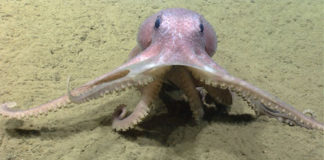“Sometimes when I have seizures, it’s because of my nightmares,” says Charleigh, age eight. “They are really scary, but sometimes I can’t remember what happened.” Charleigh has epilepsy when she is scared; it will trigger her seizures. She has a lot of nightmares and the way her brain reacts to it is causing her to have seizures. Some things that affect you when you are scared could be seizures, nightmares, or schizophrenia. Schizophrenia is a type of mental disorder that can make your behavior unnatural. But it all depends how 
According to Mayo Clinic, when teens get scared or frightened by something, they can have a febrile seizure. A febrile seizure is a type of seizure that causes no permanent damage and has no long lasting effect. Teens will not get brain damage, mental retardation, or any disorder.
Dr. Kristina Caudle from Weill Cornell Medical College and her team are published in 2013 that the most common ages that teens get these types of seizures are 13 to 17. They have found that teens act more impulsively towards fear than adults. The reason that this happens is because the brain doesn’t fully develop until the age of 21.
Caudle and her group tested impulse control on 83 people. In their tests they showed different pictures or threats on the screen and had people press a button in front of them if they felt scared or threatened. Most all of the teens pressed the button when they saw something scary or threatening. The way this can cause febrile seizures is by triggering the amygdala, a part of your brain that’s triggered from fear, the part of the brain that controls emotions.
Adults act nothing like teens when they confront fear. When they confront fear they would most likely have a little scream or flinch. In extreme cases, they are still calmer than teens are. This is because adults’ brains are fully developed and know how to react to things more than teens do.
According to Laura Sanders, who studies brain and nerve cells at the University of California in Los Angeles, the reason our brain reacts this way when we confront fear is because when we see or hear something that scares us our brain instantly steps in and does something about it. As it reacts, it sends a signal straight to our nervous system which causes physical responses, such as faster heartbeat or more major problems like a seizure.
According to www.kidshealth.org, a website that gives current research about kid’s health and diseases, when we react to fear there is something called, “fight or flight”. Flight means to get away from the things that scare you and fight is to stand up to it. More than likely our brain tells us to run away until it is all clear. If you “flight” and run away you will still scream and get scared. If you get scared too bad you will “flight” and possibly have a febrile seizure.
Abbey Bohannon and Braedyn Sondergeld

This work is licensed under a Creative Commons Attribution-NonCommercial-NoDerivs 3.0 Unported License
















Very nice:smile:smile